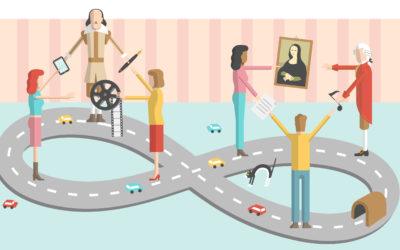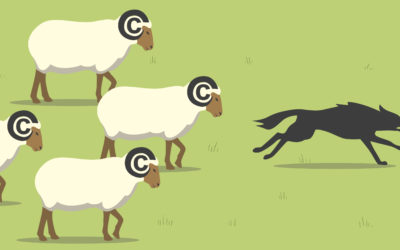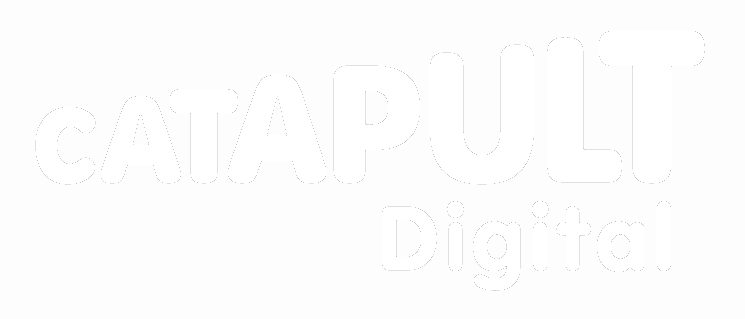Protecting your work with copyright
Illustration: Davide Bonazzi
Copyright is a set of ‘exclusive’ rights, giving creators the right to control the use of their work and the ability to earn from it. The term ‘exclusive’ in copyright law means that the copyright owner has the right to exclude others from using his or her work without first getting permission. Through the mechanism of copyright, creators’ efforts can be rewarded and that encourages the production of books, films, songs and other creative expressions. The ultimate goal of copyright is the creation and dissemination of knowledge. Therefore, one of the most delicate goals of copyright is to strike a balance between protecting creative works and allowing the public to use them.
Protection of your work under copyright law depends on a number of factors.
Firstly, it is important to remember that copyright protects only the expression of ideas, not the ideas themselves. This means for example that if you paint a landscape, another person is not prevented from taking a photograph of the same landscape. It also means that even if Bridget Jones’s Diary is copyright protected, you are still able to write your own story about a woman looking for love and keeping a personal diary, as long as you make sure that your work is substantially different to the one you are inspired by and therefore is original.
According to UK copyright law, a work is considered original if its creator uses skill, labour, judgement and effort to create it. Using another’s work is copyright infringement when ‘the work as a whole or any substantial part of it’ has been copied.
Here are some important things to know about copyright:
• Copyright generally lasts for the lifetime of the author plus 70 years. After that, the work is in the public domain and it may be re-used for free without the need to get permission from the copyright owner.
• Copyright applies to original literary, dramatic, musical or artistic works, and to sound recordings, films, broadcasts and the typographical arrangement of published editions.
• In most cases the work must be written down or in permanent/fixed form to attract copyright.
• The rules that matter are the rules of your own country; in legal terms, copyright law is territorial in nature.
• Copyright is granted automatically, no formalities as registration are required. Even if you do not register your work or do not attach the copyright symbol © to it, copyright law protects your work.
So, in order to benefit from copyright your work must be your own, you must have used your own skill, labour, judgement and effort to make sure that your work is original. It must be in a relevant medium (see list below) and be in a fixed form.
Ownership
For literary, dramatic, musical or artistic works, the author or creator of the work is the first owner of any copyright in it. In the UK, the first copyright owners of a film are the producer and the principal director. The first copyright owner of a sound recording is the record producer(s); of a broadcast it is the broadcaster; and of a published edition it is the publisher.
However, if you made the work as an employee, your employer is usually the copyright owner, unless you have agreed otherwise. In these cases contractual terms are often the actual rules governing the ownership of a work, so you should carefully check all clauses to understand who owns the several exclusive rights involved. If you are a student at University or Film School for example, the institution often has provisions for copyright in anything you create in connection with your enrolment.
If you create a work with other people, this usually results in joint ownership of the copyright. If someone wants to use this work, they need the permission of all the copyright holders, not just one.
Copyright can be bought, sold, inherited or transferred and therefore someone other than the original creator may hold the copyright in a work. However, this does not apply to moral rights, as explained below; these remain with the creator.
Proving ownership
As mentioned, copyright is granted automatically. Commonly, creators mark their work with the copyright symbol © followed by their name (or names) and the year in which the work was published: © Joe Bloggs 2013. This is not essential but it might be a good idea to show the owner of the work and when protection started.
If you wanted to, you could register your copyright through an online service or log your work with a bank or Solicitor. Some people also send themselves a copy of their work by registered post, or email it to themselves to give clear parentage to their work. However, nowadays this is not as relevant as it used to be, since with computer records the dating of production is almost always possible.
Economic rights
The copyright owner has the exclusive right to copy the work, issue copies of the work to the public, rent or lend the work to the public, perform, show or play the work in public, communicate the work to the public, edit or adapt the work, sell or license the copyright for use by others.
As mentioned above, the exclusive right allows rightsholders to exclude others from using their work without permission. The process of getting permission can be quite complicated, since all the rights mentioned above may co-exist in one single work, and each of them may have several owners.
Moral rights
The copyright regime consists of not only economic rights but also moral rights. Moral rights include the right to be identified as the author of the work (often referred to as the right of attribution) and the right not to have the work subjected to ‘derogatory treatment’ (often referred to as the right of integrity), meaning to prevent a use of the work which offends or belittles its creator.
It is important to know that the moral right to be identified as the author of a work does not arise until it has been asserted. As such, it is good practice always to assert this right. You may do this by including a statement such as the following in your work:
Joe Bloggs has asserted his right under the Copyright, Designs and Patents Act, 1988, to be identified as the author of this work.
Moral rights also include the right not to have a work falsely attributed to you and the right to privacy of certain photographs and films.
Unlike economic rights, moral rights cannot be sold or assigned to another person. Therefore, even when you sell your exclusive rights to a publisher or a broadcaster for example, you still hold your moral rights. Whoever acquires the economic rights to your work will be able to exploit your work, but in doing so they will be obliged to credit you as the author of the original work.
That said, while moral rights cannot be sold or assigned to another person, it should be noted that an author can ‘waive’ his or her rights of attribution and integrity by agreement in writing. For example, someone who works as a ghost writer will almost certainly be asked by the publisher to ‘waive’ their right to be identified as the author of the work in question. In general though, you should try to avoid waiving your moral rights unless absolutely necessary.
Exceptions to copyright
Having copyright in your work allows you to exploit your creation and exclude other people from using it. If someone uses your copyright material without your permission, you then have the right to take legal action against them and claim damages. However, it is important to note that there are exceptions to copyright; these are circumstances in which a person does not need the permission from the copyright owner to use his or her work. These include quotation, news reporting, education, research and private study, archiving and preservation.
Copyright can exist in any of the following types of work:
• ‘Literary work’; this basically means anything that is written, spoken or sung, and also includes a table or compilation, a computer program, and a database.
• ‘Dramatic work’; includes a work of dance or mime.
• ‘Musical work’; means a work consisting of music, without the words or actions performed with the music.
• ‘Artistic works’; including any graphic work such as painting, drawing, diagram, map, chart or plan, photograph, sculpture or collage, any work of architecture such as a building or any work of artistic craftsmanship.
• ‘Sound recording’; any recording of sound that can be replayed.
• ‘Film’; any form of moving image that can be replayed.
• ‘Broadcast’; any electronic transmission of visual images, sounds or other information.
• ‘Published editions’; this is the typographical arrangement and design of the work, usually referring to the style, composition, layout and general appearance of a page of a published work.
Legal language:
One source of controversy in copyright cases is often the status of work created by an employee in the course of their employment.
In the case of Stevenson Jordan & Harrison v McDonnell & Evans [1952] 1 T.L.R. 101 CA it was confirmed that when the creator of a work is under a contract of service or apprenticeship and the work was made in the course of that employment, in the absence of any agreement to the contrary, the employer is the first owner of the copyright.
University of London Press Ltd v University Tutorial Press Ltd [1916] 2 Ch 601:
“The word ‘original’ does not in this connection mean that the work must be the expression of original or inventive thought. Copyright Acts are not concerned with the originality of ideas, but with the expression of thought, and, in the case of ‘literary work’, with the expression of thought in print or writing. The originality which is required relates to the expression of the thought. But the Act does not require that the expression must be in an original or novel form, but that the work must not be copied from another work — that it should originate from the author”.
Legal references:
Copyright is governed in the UK by the Copyright, Designs and Patents Act 1988. UK copyright law is also subject to the terms of several international treaties.
For types of copyright work see, Sections 3 – 8 of the Copyright, Designs and Patents Act 1988
For ownership of copyright see, Sections 9 – 11 of the Copyright, Designs and Patents Act 1988
For economic rights, see Sections 16 – 24 of the Copyright, Designs and Patents Act 1988
For moral rights, see Sections 77 and 78 of the Copyright, Designs and Patents Act 1988
The UK Intellectual Property Office provides further Copyright information here, and the World Intellectual Property Organisation, here.
Related
Licensing & Exploiting
If you own the copyright in a work, you are free to exploit it on your own or license the use of it to another party (such as a book publisher). ‘Exploit’ in this context means to develop or make use of it.
Using & Reusing
When creating new work, it is natural to be inspired by the work of others. However, there is an important distinction between simply being inspired and unlawfully copying.
Enforcement
Useful guidance on what you can do if you think someone has infringed your copyright, or if someone has accused you of copyright infringement.











